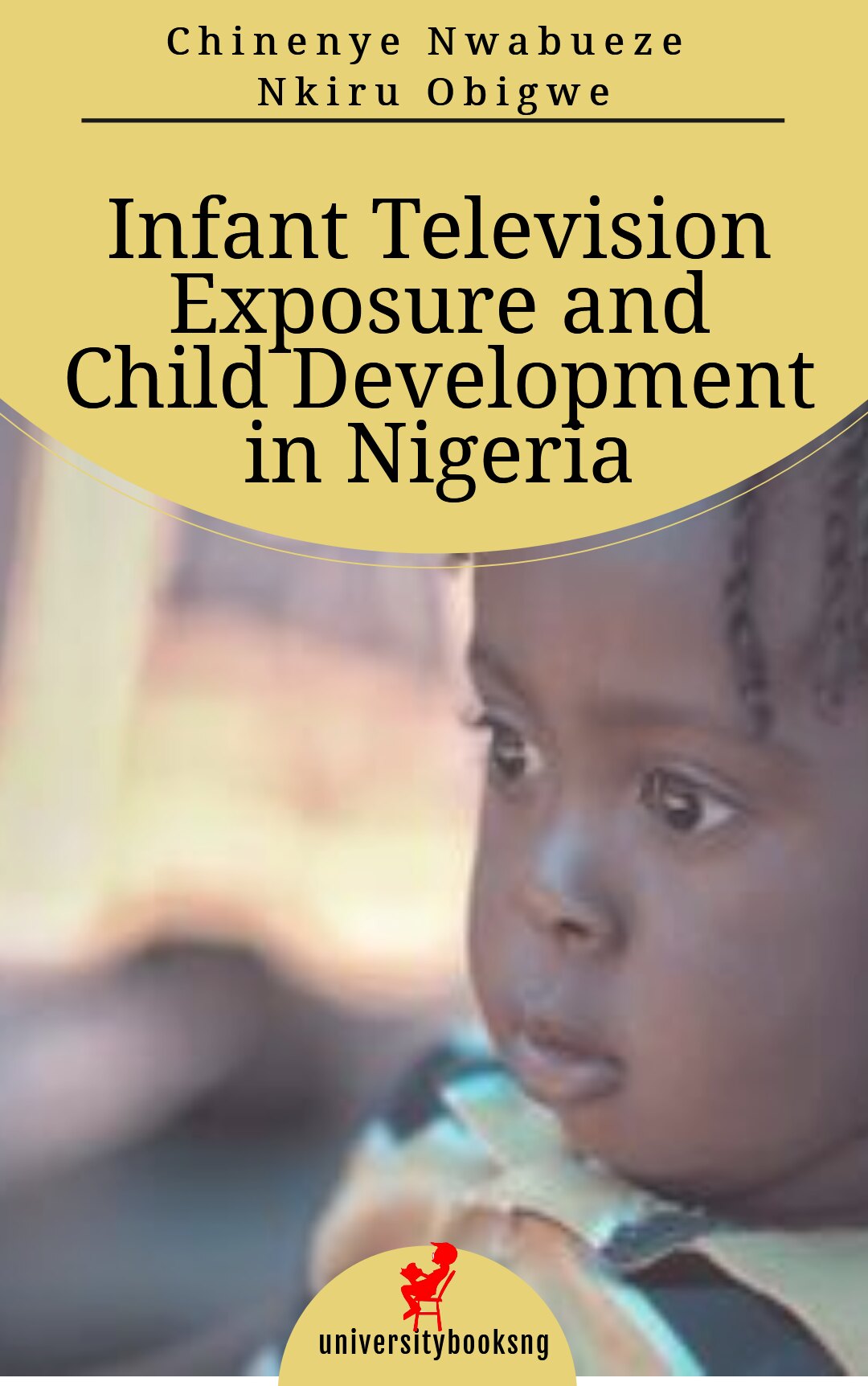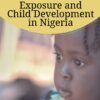Infant Television Exposure and Child Development: A Study Of Children In Onitsha, Nigeria
₦1,000.00₦1,600.00
- USD: $0.65
This study investigated infant television exposure and child development: a study of children age 6 month-below age 2 years in Onitsha. The study, in other words, has its primary objectives as discovering the exposure pattern to television programme of infants in Onitsha and the cognitive development that exposure to television has on children after 17 months. Situated within the framework of cultivation theory and social cognitive theories, the study had its design as census sampling and the population was infants in Onitsha, Anambra State, South East of Nigeria.
 University Books / Pre-sale Questions
Need Help? Contact Us via WhatsApp
University Books / Pre-sale Questions
Need Help? Contact Us via WhatsApp
This study investigated infant television exposure and child development: a study of children age 6 month-below age 2 years in Onitsha. The study, in other words, has its primary objectives as discovering the exposure pattern to television programme of infants in Onitsha and the cognitive development that exposure to television has on children after 17 months. Situated within the framework of cultivation theory and social cognitive theories, the study had its design as census sampling and the population was infants in Onitsha, Anambra State, South East of Nigeria. The entire population was studied due to the small nature of the population while personal interview and observation were employed for data collection. Data were analyzed using explanation building and qualitative data analysis. Findings indicated that infants were exposed to television on an average of two hours a day during week days when they returned from school and four hours a day during weekend and holidays, and that the infants were always exposed to educational infant/ young child–oriented programme and non–formal educational young child oriented movies or programmes. It was also discovered that early television exposure had these influences on the cognitive development of infants; identification of objects, pronunciation of letters and words, including identification of characters in the family. The study concluded that infants, studied were exposed to educational andnon–formal educational programmes intended for infants in their stage which had influenced their cognitive development ranging from early language development, identification of objects and pronunciation of words. It was recommended among other things, that parents should ensure guided television viewing by infants so as to get them exposed to programmes that would be beneficial to their development and that early children schools such as crèche and kindergarten should work together with parents to see that movies or programmes watched by infants in school are also watched at home




Reviews
There are no reviews yet.